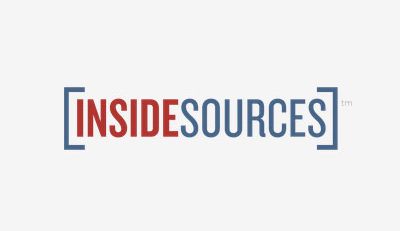By Doug Kelly, CEO of American Edge Project
The emergence of automobiles stirred uncertainty and fear so great that the United Kingdom enacted the “Red Flag Act” of 1865. The law restricted auto speeds to 2 miles per hour and required a pedestrian to walk at least 60 paces ahead of an auto, waiving a red flag.
Today, new developments in artificial intelligence are triggering uncertainty and fear as well, sparking a rush to regulate the unknown. As we consider AI’s powerful potential, it’s worth asking: Are policymakers potentially “red flagging” the next giant leap in innovation and handing an advantage to our authoritarian adversaries?
AI is a prospective game-changer in solving some of the greatest challenges facing our planet. It is already an integral part of our daily lives, driving everything from search engines to voice assistants, fraud detection and spam filtering. Here are five real-life ways AI is assisting with the challenges facing every community:
- Education: AI can help students develop their potential by personalizing learning experiences and adapting content to students’ pace and style. By pinpointing struggle areas, AI can customize teaching methods, improve understanding and help promote lifelong learning.
- Small Business: Ninety-eight percent of America’s 33 million small businesses employ fewer than 20 people. Low-cost AI tools can help boost productivity, develop content, automate tasks and derive insights from customer data, making small businesses more efficient. It can also optimize inventory and deliver personalized customer experiences, all of which help small businesses thrive in competitive markets, create jobs and boost local economies.
- Healthcare: AI is already transforming healthcare by developing personalized treatments, predicting disease outbreaks, and improving health outcomes while reducing costs. New AI tools have the potential to find cures for diseases and chronic conditions that afflict tens of millions nationally.
- Substance Abuse: More than 100,000 Americans die of drug-related overdoses yearly, with opioids accounting for three in every four deaths. Recovery specialists are using AI to develop more customized treatments, drugs, and to analyze healthcare data to identify patterns and risks of opioid addiction. AI is also helping direct resources and interventions effectively.
- Agriculture: The world will have to feed 10 billion people by 2050. AI technologies can increase agriculture yields while reducing pesticide use by remotely monitoring crop health and soil, aiding in precision farming and providing data to improve real-time decision-making and forecasting. Just last year, the Department of Agriculture launched an initiative focused on using AI for food production, safety, security and disease resistance.
A report by PwC estimates the global economic effect of AI to be $14 trillion by 2030, with China and North America projected to be the biggest winners in terms of economic gain. But if regulators in Washington or Europe tie the hands of AI innovators, we run the risk of falling behind in AI leadership to China, which has invested hundreds of billions in an attempt to gain global AI superiority.
If China takes a commanding lead in this technology, not only will it reap trillions in economic gain but it will also give itself an edge over the United States when it comes to national security, including in cybersecurity, surveillance, autonomous weapons, drone warfare, intelligence analysis and other AI-driven military applications.
To be sure, AI is a powerful technology that needs smart guardrails. A balanced, responsible approach to AI regulation is vital for the United States to maintain its tech advantage over authoritarian ambitions. The recent agreement on voluntary standards between the federal government and the leading AI firms was a meaningful first step. This collaborative public-private sector approach will promote rapid development and application of AI in a safe, secure and transparent manner so the United States remains globally competitive while also mitigating the risk of authoritarian adversaries exploiting overly strict regulations to gain a permanent advantage.
Astonishingly, AI will have an even larger effect than the development of the internet. That’s why the United States must get it right — because it matters greatly which country, and which set of values, builds the future.
